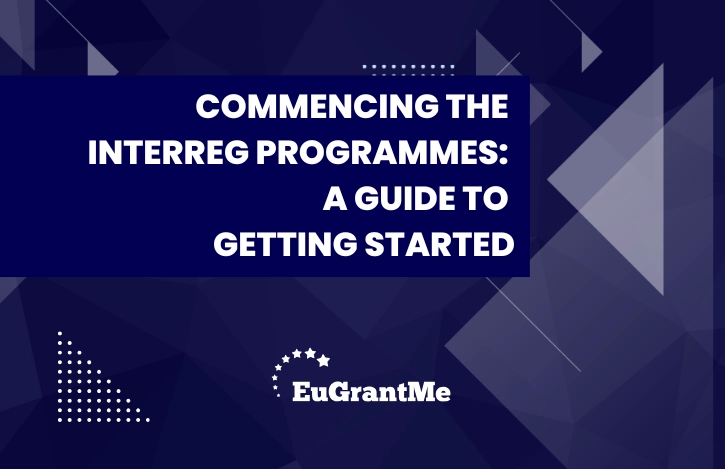Interreg Programmes support cooperation between European regions. They fund projects that strengthen economic, social, and territorial cohesion. These initiatives promote cross-border partnerships and address shared regional challenges.
The European Union launched Interreg to foster collaboration between countries. It helps regions tackle common issues such as environmental protection, infrastructure development, and innovation. The funding encourages local authorities, businesses, and research institutions to work together.
Key Objectives of Interreg
Interreg Programmes enhance regional integration. They funds projects that improve connectivity, strengthen economies, and address social disparities. These efforts contribute to balanced development across Europe.
Sustainability is a major focus. Interreg funds initiatives that support green energy, biodiversity protection, and climate adaptation. These projects help regions transition to a low-carbon economy.
Innovation plays a vital role. The programme promotes research collaborations and supports businesses in adopting new technologies. It strengthens the competitiveness of European regions.
Identifying the Right Interreg Programme
Several strands of Interreg exist, each targeting different levels of cooperation. Some focus on cross-border regions, while others address transnational and interregional collaboration. Understanding these differences helps applicants find the right funding opportunity.
Cross-border programmes support neighbouring regions. They help communities cooperate on transport, health, and environmental protection. These projects strengthen local connections and improve services.
Transnational programmes fund larger geographic areas. They address broader challenges like climate change, migration, and digital transformation. These initiatives involve multiple countries working towards shared goals.
Interregional programmes connect regions across Europe. They focus on knowledge exchange and best practice sharing. These projects foster innovation and improve governance.
Preparing a Strong Project Proposal
A well-defined project proposal increases funding chances. Clear objectives, realistic budgets, and strong partnerships are essential. Applicants should align their projects with Interreg priorities.
Developing a project idea starts with identifying regional challenges. Understanding local needs ensures that the project delivers real benefits. Strong proposals present solutions that match EU policy goals.
Partnerships are crucial. Successful projects involve public authorities, businesses, and research institutions. Collaboration strengthens project impact and ensures sustainability.
Budget planning requires accuracy. Funding covers various costs, but applicants must justify expenses. Transparent financial planning demonstrates feasibility and increases approval chances.
Navigating the Application Process
Interreg applications follow structured procedures. Understanding the process helps applicants submit competitive proposals. Each programme has specific guidelines, but general steps remain similar.
Applicants must check eligibility criteria. Each programme defines who can apply and which activities receive funding. Ensuring compliance with these rules prevents disqualification.
Project calls open at different times. Monitoring programme websites and attending information sessions helps applicants stay informed. Early preparation improves submission quality.
Applications require detailed documentation. Project plans, financial projections, and partnership agreements must be clear and well-structured. High-quality proposals improve funding success rates.
Building Strong Cross-Border Partnerships
Interreg projects depend on collaboration. Building strong partnerships ensures smooth project implementation and maximises impact. Trust and cooperation are essential for success.
Selecting the right partners is crucial. Organisations with relevant expertise and experience strengthen project credibility. Balanced partnerships enhance knowledge exchange and resource-sharing.
Effective communication supports collaboration. Regular meetings and clear roles improve project coordination. Digital tools facilitate information sharing across borders.
Joint decision-making fosters engagement. Partners should contribute to planning, implementation, and evaluation. This approach ensures shared responsibility and strengthens project outcomes.
Ensuring Compliance with EU Regulations
Interreg funding follows strict regulations. Compliance with EU rules is essential to secure and maintain financial support. Understanding these requirements helps projects avoid setbacks.
Financial accountability is a key aspect. Projects must keep accurate records of spending. Regular audits ensure that funds are used correctly and transparently.
Procurement rules apply to project expenses. Fair competition and transparency are required for contracts and purchases. Following these guidelines prevents legal issues.
Monitoring and reporting help track progress. Funded projects must submit regular reports detailing activities and expenditures. Proper documentation demonstrates effective fund management.
Maximising the Impact of Funded Projects
Interreg projects should deliver long-term benefits. Maximising impact ensures that funded initiatives contribute to regional development and policy improvements.
Sustainability planning is vital. Projects should continue generating positive outcomes after funding ends. Long-term strategies ensure lasting effects.
Stakeholder engagement strengthens project reach. Involving communities, businesses, and policymakers increases awareness and support. Wider participation enhances project success.
Knowledge sharing amplifies results. Disseminating findings and best practices helps other regions replicate successful approaches. This fosters broader European cooperation.
Looking Ahead in European Cooperation
Interreg Programmes drive regional collaboration and innovation. By supporting cross-border partnerships, they strengthen European integration and promote sustainable development.
Ongoing investments in connectivity, sustainability, and innovation ensure lasting impact. Interreg Programmes continue to shape a resilient and competitive Europe through cooperation and shared solutions.
At EuGrantMe, we are passionate about fostering innovation and empowering ambitious minds to flourish. Our mission revolves around providing top-notch grant writing services for the EIC Accelerator and Horizon grants in Europe. We enable our customers to unlock the full potential of their ground-breaking ideas.
Do you have a project to turn into reality?
Contact us!


